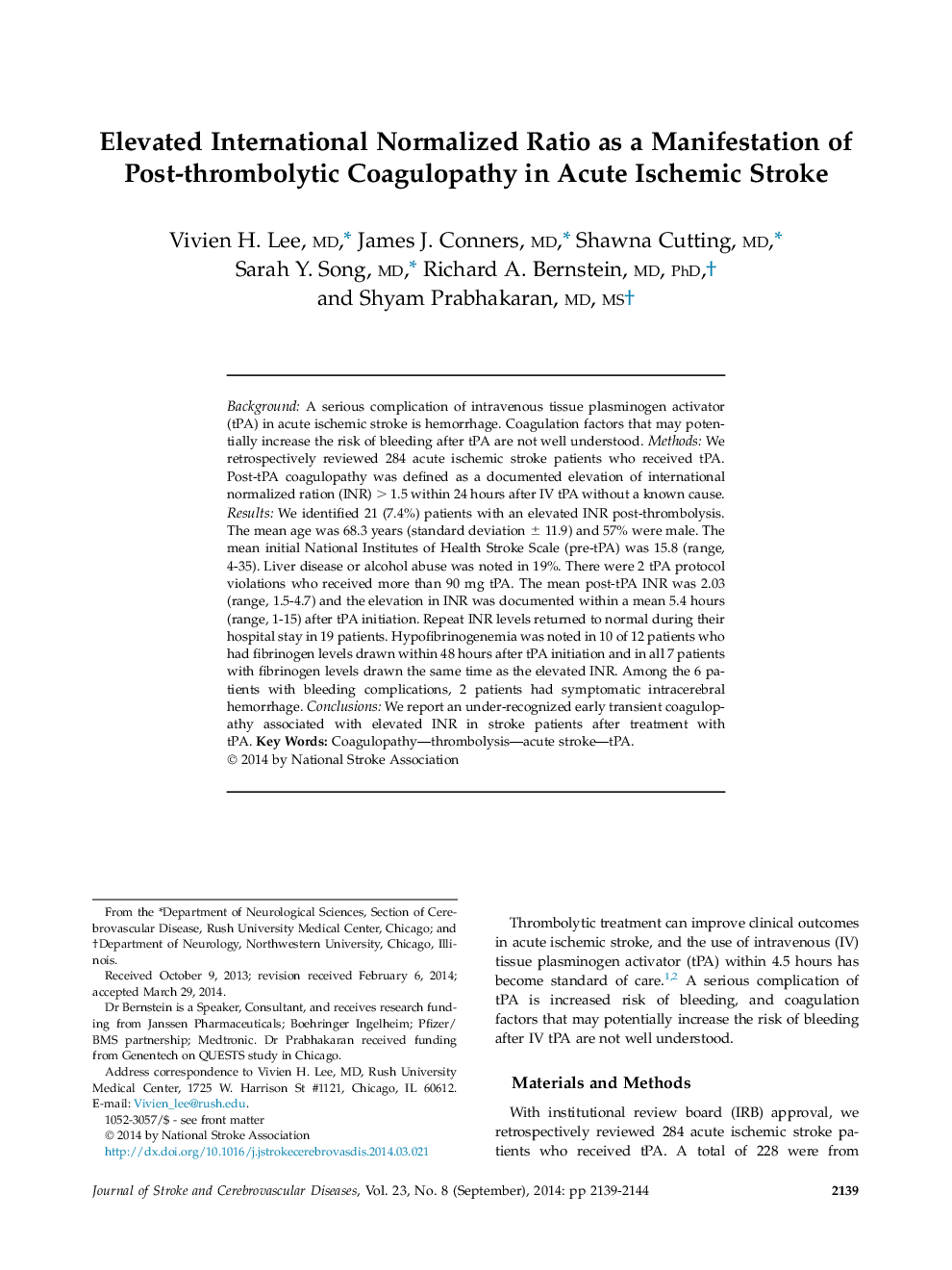| Article ID | Journal | Published Year | Pages | File Type |
|---|---|---|---|---|
| 2706009 | Journal of Stroke and Cerebrovascular Diseases | 2014 | 6 Pages |
BackgroundA serious complication of intravenous tissue plasminogen activator (tPA) in acute ischemic stroke is hemorrhage. Coagulation factors that may potentially increase the risk of bleeding after tPA are not well understood.MethodsWe retrospectively reviewed 284 acute ischemic stroke patients who received tPA. Post-tPA coagulopathy was defined as a documented elevation of international normalized ration (INR) > 1.5 within 24 hours after IV tPA without a known cause.ResultsWe identified 21 (7.4%) patients with an elevated INR post-thrombolysis. The mean age was 68.3 years (standard deviation ± 11.9) and 57% were male. The mean initial National Institutes of Health Stroke Scale (pre-tPA) was 15.8 (range, 4-35). Liver disease or alcohol abuse was noted in 19%. There were 2 tPA protocol violations who received more than 90 mg tPA. The mean post-tPA INR was 2.03 (range, 1.5-4.7) and the elevation in INR was documented within a mean 5.4 hours (range, 1-15) after tPA initiation. Repeat INR levels returned to normal during their hospital stay in 19 patients. Hypofibrinogenemia was noted in 10 of 12 patients who had fibrinogen levels drawn within 48 hours after tPA initiation and in all 7 patients with fibrinogen levels drawn the same time as the elevated INR. Among the 6 patients with bleeding complications, 2 patients had symptomatic intracerebral hemorrhage.ConclusionsWe report an under-recognized early transient coagulopathy associated with elevated INR in stroke patients after treatment with tPA.
